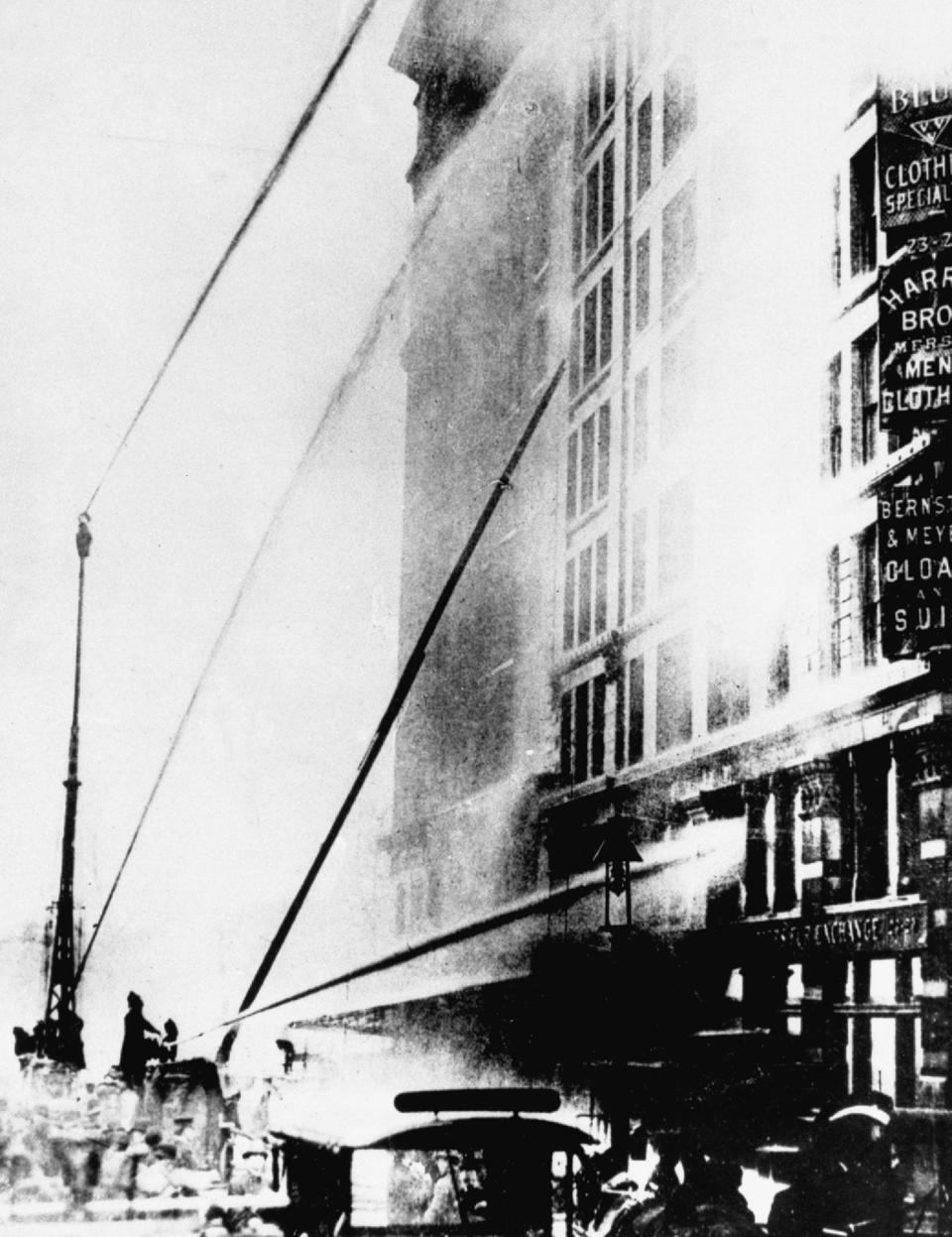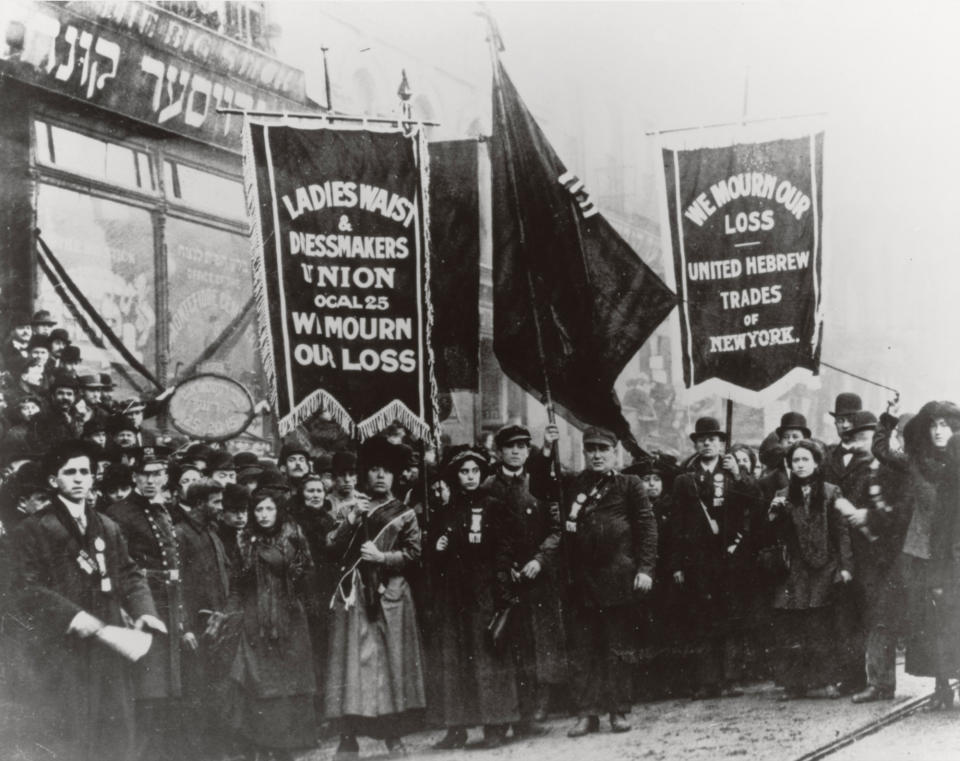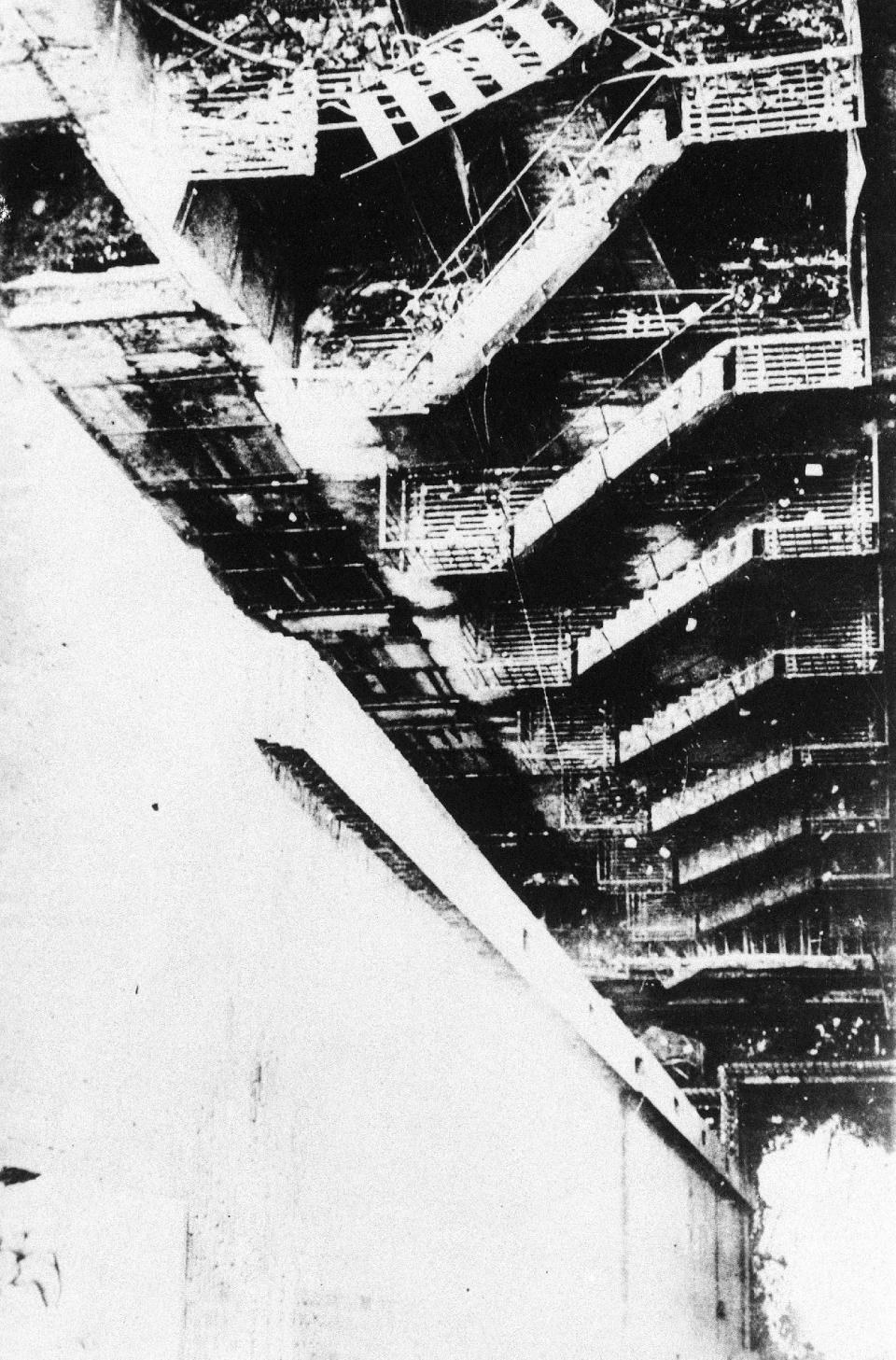In Bangladesh, echoes of 1911 Triangle fire in NYC
NEW YORK (AP) — Terrified women leaping to their deaths. Locked exits trapping workers. Piles of clothing blocking stairwells to safety.
The fire that raced through a garment factory in Bangladesh last week and killed 112 workers bore eerie echoes of another blaze more than a century ago: the Triangle Shirtwaist factory fire in New York City. While the March 25, 1911, Triangle fire that killed 146 workers spurred the organized labor movement and led to workplace safety improvements, experts question whether the same will happen in Bangladesh.
"Profit and efficiency and competition always trump safety and health," said James Gross, a labor relations professor at Cornell University. "There's all this hoopla, and then not a lot happens after."
In Bangladesh, officials blamed the high death toll in part on the lack of an emergency exit in the eight-story building that housed Tazreen Fashions Ltd., a factory that made clothing for such U.S. retailers as Wal-Mart, Sears and Disney. Likewise, Triangle survivors testified that as the fire raced through the top three floors of a 10-story building, a crucial door that would have helped many escape was locked.
Most of the workers at the Tazreen factory were women from the poorest region of the South Asian country. Young, poor immigrant women, mainly Jews and Italians, dominated the workforce at Triangle.
Stacks of yarn and clothes blocked part of the stairway in Bangladesh, and dozens of fire extinguishers in the building appeared unused. At Triangle, the stairway was blocked by crates of blouses and other goods, and water buckets were inadequate to cope with the fire.
"All around me the others were screaming and hollering," Triangle worker Celia Saltz Pollack recalled later as part of a project to interview survivors. "The door was locked and I pushed over to the door of the elevator. When the elevator stopped on our floor, I was swept into it by the pushing crowd."
A state commission convened in response to the Triangle fire drafted 20 laws aimed at improving workplace safety, including requirements for fire drills, occupancy limits in buildings and clearly posted exit signs.
"I'm heartsick. It's tragic," said Suzanne Pred Bass, the great-niece of Katie Weiner, who survived the Triangle fire, and of Rose Weiner, who did not. "It's not just reminiscent; it is the same event replayed again."
Bass said what breaks her heart is the fact that she hasn't seen the same degree of public outrage that followed the Triangle fire.
"I think we need, in this country, to have a boycott of Bangladesh clothing until their factories are safe," she said. "Until their unions are protected."
But unions are scarce in developing nations like Bangladesh, where workers have few protections, said Ethan Snow, a spokesman for Unite Here, a union that represents garment and textile workers in the U.S.
"The reason why these major companies have moved to these countries is because there are no unions," Snow said. "And because there is no democratic process on the shop floor for workers."
The fire has drawn attention to a problem that labor groups, retailers and governments have known for years: Bangladesh's fast-growing garment industry, second only to China's in exports, is rife with dangerous workplaces. More than 300 workers there have died in fires since 2006.
The country annually earns about $20 billion from exports of garment products, mainly to the U.S. and Europe.
Labor Minister Rajiuddin Ahmed Raju said Thursday that factories without emergency exits or with only one such exit will be forced to close until they upgrade their safety infrastructure.
The factory's owner, Delwar Hossain, said he was never informed the facility was required to have an emergency exit.
"It was my fault. But nobody told me that there was no emergency exit, which could be made accessible from outside," Hossain was quoted Thursday as telling The Daily Star newspaper. "Nobody even advised me to install one like that, apart from the existing ones."
Nazma Akhter, president of the Bangladesh Combined Garment Workers Federation trade union, called for the arrest of the factory's owners and management to send a message to the industry as a whole.
Companies that do business with local factories need to feel some pressure, according to the Center for Safety and Health Sustainability and the American Society of Safety Engineers, two groups that are doing research on worker safety.
"It's not enough to condemn local factory owners for these conditions and to expect long term change," said Thomas Cecich, a vice president of the sustainability group, in a statement Thursday. "The corporations that source supply chain products, as well as their stakeholders, have tremendous power to influence the conditions in which supply chain workers operate."
___
Associated Press writer Julhas Alam in Dhaka, Bangladesh, contributed to this report.




